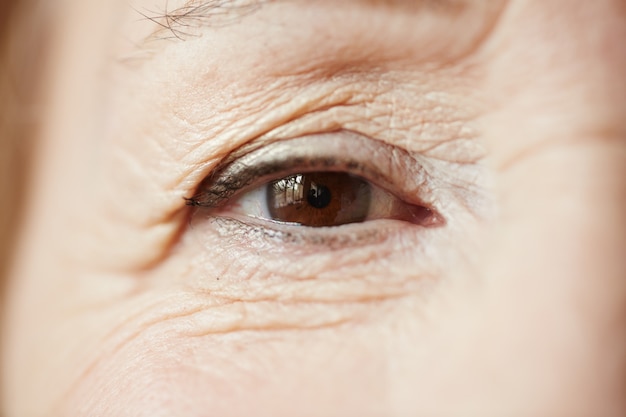Blue Light from digital devices can kill vital molecules in the eye
In today’s digital setup, it would be a head-turning moment for people who live their lives without a device on hand. Although not entirely, a large part of the population is already digitally dependent on these devices, not only because they find entertainment from it but because it’s a necessity for almost anything - from information consumption to basic communication. While it is truly understandable to us, to our bodies it’s not. The eyes specifically, which are also known as windows to the soul, are not very friendly with these objects as they contain something that could cause them harm when excessively exposed. This is called the blue light.
The Blue Light

What is blue light?
Sunlight contains a spectrum of colored light rays (red, orange, yellow, green, and blue). They are in various shades and divided according to their energy and wavelength, which is also called electromagnetic radiation.
There are two sides of the spectrum that further divide these individual rays. Those rays with long wavelengths but less energy, and light rays with shortest wavelengths but highest energy. Blue light is on the visible side and considered part of the rays with short wavelengths and high energy. This makes it capable of causing effects on the skin like UV rays do.

(source: 7 Blue Light Facts: It's Both Bad and Good For You)
The dark side of blue light
Blue light from digital devices and the sun transforms vital molecules in the eye’s retina into cell killers, according to optical chemistry research at The University of Toledo.
This study confirms how high energy blue light can cause macular degeneration which an incurable disease that can cause blurred vision and blindness. Furthermore, blue light can also affect one’s sleep as it impacts melatonin production.
Prolonged exposure to blue light on retinal, a form of Vitamin A, causes the retinal to kill the photoreceptor cells. Photoreceptor cells are the light-sensitive cells in the retina that absorb light and convert it into an electrical signal that is passed to the brain through the optic nerve. These photoreceptor cells are not able to regenerate in the eye.
Fighting the Blue Light
Due to the growing concern on the negative effects of blue light, experts and researchers work on all possible ways to treat or prevent further worse case scenarios on too much exposure to blue light.
Use blue light filters
Technology has introduced the use of blue light filters. This is specifically made for smartphones, tablets, and computer screens to help suppress the production of melatonin (sleep-inducing hormone) and reduce digital eye strain without affecting the visibility of the display. If you’re inevitably involved in devices most of your time in a day, this is a necessary item to include in your setup.
Wear special sunglasses
The approved anti-blue light glasses are also found as a useful item to reduce exposure to blue light. These are also called computer glasses which contain yellow-tinted lenses and ease computer digital eye strain by increasing contrast.
Minimize the use of devices at night
Try to take necessary breaks away from screen time as much as you can, and during the night is the most possible time to do so, especially if you work with the involvement of these devices in your morning shift. Doing this prevents the increase of eye fatigue, muscle strain, and also helps you get a good night sleep. If it’s for necessary reasons that you can’t help but use them during the night, downloading a blue filter app on your device would be of some good help.
Ensure regular eye exams
Eye health is just about as important as other parts of your body that require regular check-ups. Make sure to get regular visits to your licensed ophthalmologist to provide you updates on your eye condition and recommend effective solutions to maintain clear and healthy vision.

Take supplements that contain the best eye health nutrients
There have been multiple supplements that are being produced for eye health purposes as well. The key to choosing what to consume is to find the proper ingredients that have eye health benefits. Some of these top ingredients include proven studies on Vitamin A, Vitamin C, Vitamin E, Zinc, Lutein and Zeaxanthin, Lutemax 2020, and more. S-CELL’s vision revival, an eye health supplement contains all the mentioned ingredients which are powerful enough to benefit not only the eyes but overall health and wellness as well.
Despite all these, blue light is still needed for your health. It helps boost alertness, improves memory and cognitive function, elevates mood, and regulates circadian rhythm. The negative sides of blue light show that excessive exposure isn’t good, just as how it applies to many things in general - too much is not good. If you are able to control the use of these devices, use materials that help reduce exposure, take proper nutrients and regularly consult your ophthalmologist, the higher the chances to improve and maintain a clear and healthy vision.


